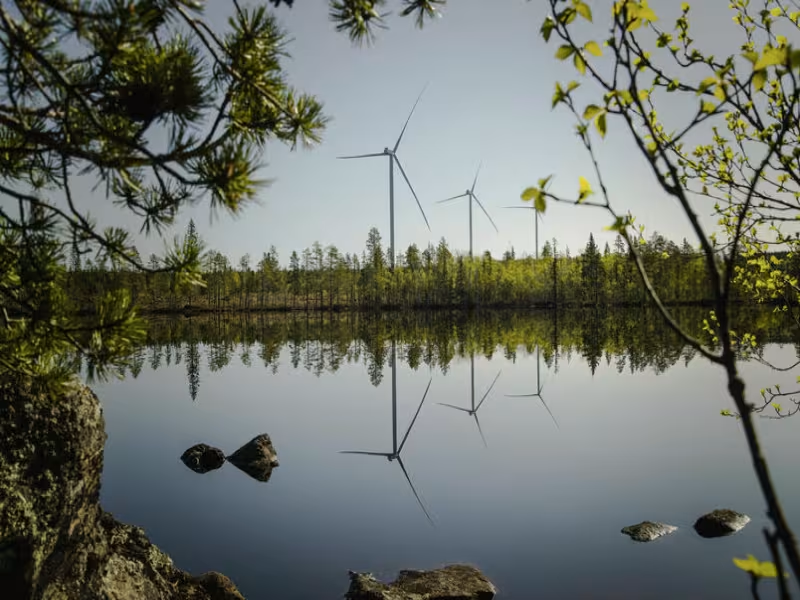
SHERIDAN, WYOMING – Jan. 16, 2025 – Volkswagen is taking a major step toward sustainable transportation by supporting 26 solar and wind farms across Europe. This initiative ensures that the energy consumed by ID. models on European roads is matched by green electricity, significantly reducing their carbon footprint and contributing to the decarbonization of mobility.
Green Power Projects Delivering Significant Renewable Energy
Since 2021, Volkswagen has been a pioneer in supporting the large-scale expansion of renewable energies in Europe. The company's involvement in these 26 green power projects across nine countries has already resulted in a remarkable three terawatt-hours (TWh) of electricity being fed into the European power grid. This is equivalent to the annual energy consumption of approximately 800,000 households.
"We plan to step up our commitment in the field of renewable energies each year in line with the development in sales of ID. models," says Andreas Walingen, CSO and Head of Strategy of the Volkswagen Passenger Cars brand. "Through the large-scale development of European wind and solar farms, we intend to support our customers in the region in their efforts to always use their ID. vehicles in a net carbon-neutral way. This shows that our commitment to sustainability goes far beyond the electrification of vehicles.”
Key Projects and Locations
Among the notable projects supported by Volkswagen are a solar park in Vila Real, Portugal, generating over 60 GWh per year, and a wind farm in Djupdal, Sweden, with a Volkswagen-supported share of 70%, producing over 1,000 GWh annually. These projects, along with 18 photovoltaic plants and eight wind farms across Spain, Sweden, Finland, Portugal, the United Kingdom, Germany, Italy, the Netherlands, and Poland, highlight Volkswagen's commitment to renewable energy across the continent.
Offsetting "Grey" Electricity Consumption
In 2024 alone, these projects generated approximately 1.1 TWh of green power. This output effectively offsets the estimated electricity demand of the Volkswagen ID. fleet on European roads currently powered by "grey" electricity. Considering that around 40% of charging currently relies on non-renewable sources, Volkswagen's initiative is crucial in transitioning towards a carbon-neutral future for electric mobility.
Reducing the Carbon Footprint of ID. Models
Life cycle analyses conducted by Volkswagen demonstrate that using green power for charging significantly reduces the CO2 footprint of ID. models. For instance, an ID.4 Pro charged with green electricity from the EU grid mix has a 50% lower carbon footprint compared to a comparable diesel model over its life cycle. Furthermore, this translates to a lower overall carbon footprint after approximately 66,000 km.
Driving Sustainable Mobility
Volkswagen's commitment to decarbonization goes beyond just producing electric vehicles. By actively supporting the development of renewable energy sources, the company is ensuring that the use of its ID. models contributes to a cleaner and more sustainable future for transportation. This initiative empowers ID. drivers to minimize their environmental impact and embrace truly green mobility.
Volkswagen's Sustainability Strategy
Decarbonization, coupled with the transition to e-mobility, is a cornerstone of Volkswagen's sustainability strategy. By investing in renewable energy infrastructure and promoting the use of green power for charging, Volkswagen is actively shaping a future where electric vehicles achieve their full potential in reducing carbon emissions and mitigating climate change.